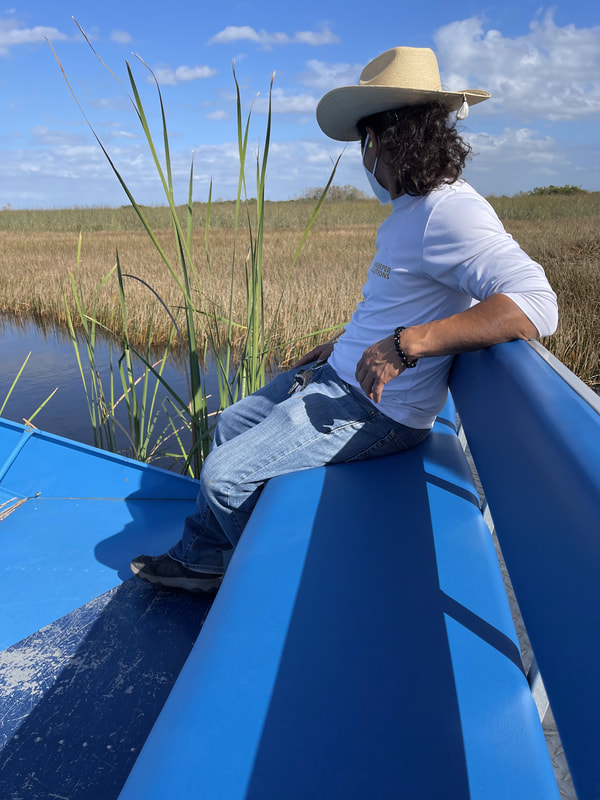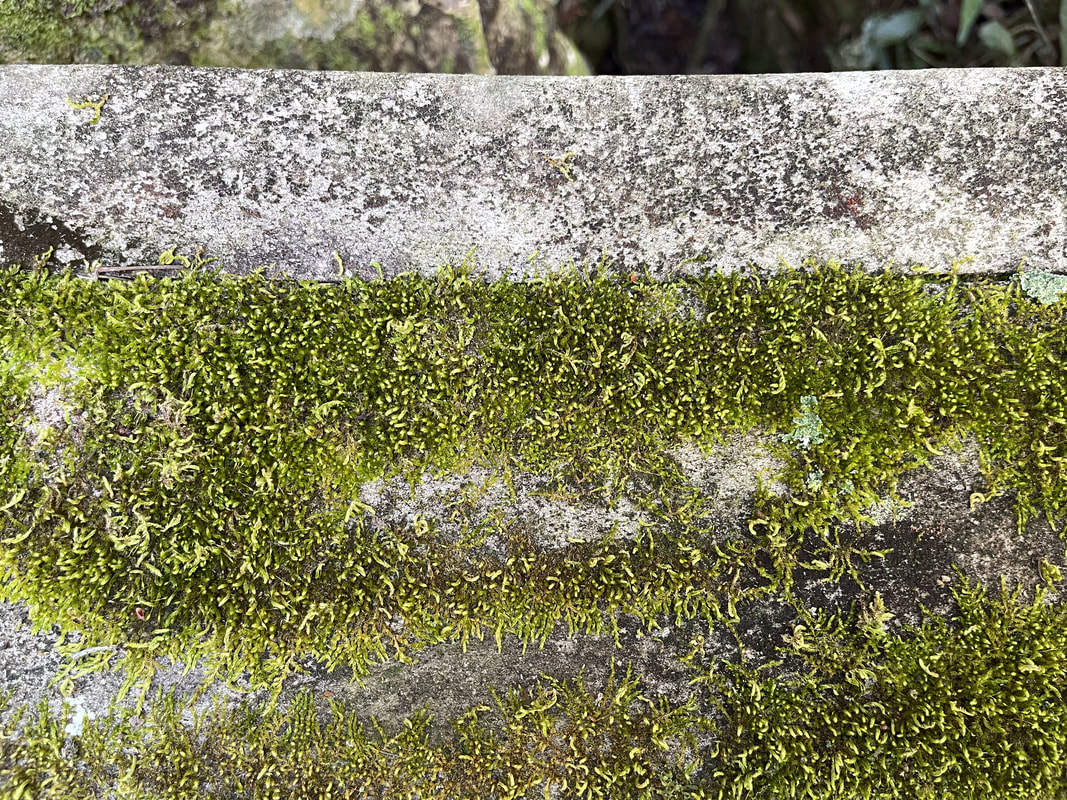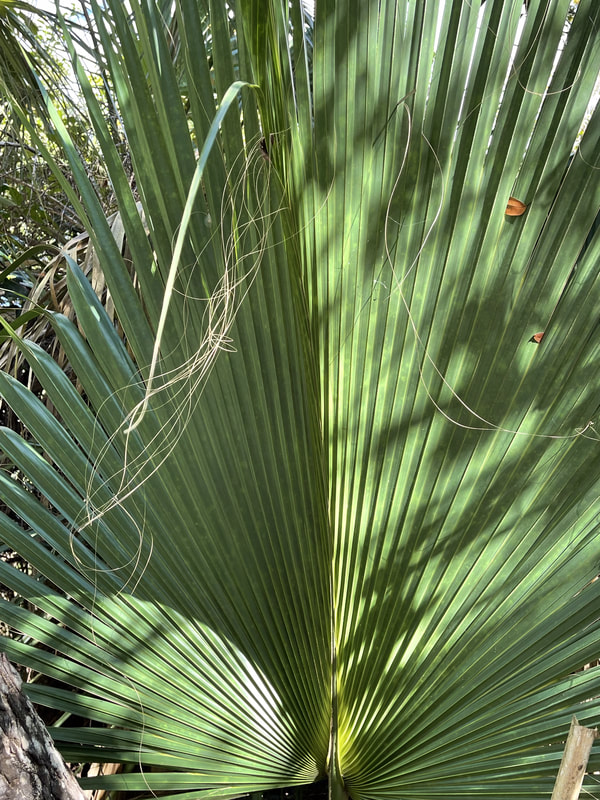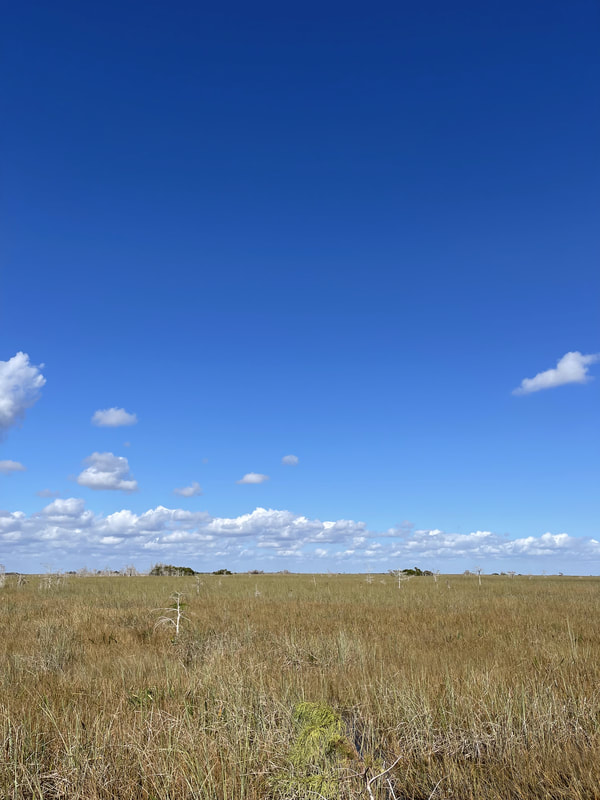EvCo37 Communique: Treaties, Peace & Reconciliation
Board of Directors
Love The Everglades Movement
Even with the continued lack of awareness by the general public of the full history of indigenous community interactions with the USA and the State of Florida, communities like the Miccosukee Tribe of Indians of Florida are still very optimistic about the potential to build coalitions focused on environmental conservation.
This optimism is exemplified by the ongoing educational outreach of various Miccosukee community members, such as people like Miccosukee Grandmother Betty L. Osceola of the Panther Clan, and Miccosukee Elder Michael Frank of the Otter Clan. This optimism is founded on the joy which is sustained by the community's spiritual beliefs.
This optimism is what inspires us to action, and what we would like to explore with you here by sharing 2 important historical documents created under the leadership of the Miccosukee Chairman Buffalo Tiger of the Bird Clan.
On July 17, 1983, the Honorable Buffalo Tiger formally announced a Celebration of Peace. The Miccosukee Tribe of Indians of Florida had recently settled Land Claims concerning their interests in a homeland for their people. These Miccosukee land claims go back nearly 400 years and are recorded in numerous treaties between their people and the European powers of Spain, Great Britain, and eventually the United States of America.
Around the time of this Land Claims Settlement, the Miccosukee Tribe also initiated an environmental study of the lands over which they were now guaranteed, and thus began their twice-yearly Everglades Study, which eventually led to the Miccosukee Tribe setting the standard for Everglades Restoration. This water quality standard is one of the foundational goals of Everglades Restoration, which is the target of reducing phosphorus levels to 10 parts per billion in the River of Grass section of the Greater Everglades.
First we'll look at the TREATY RELATIONS OF THE MICCOSUKEE TRIBE, and then we'll look at the CELEBRATION OF PEACE declaration by Hon. Buffalo Tiger. Both of these documents were created in 1983.
Treaty Relations of the Miccosukee Tribe
When the British acquired Florida from Spain in 1763, they quickly entered into treaty relations with the Tribes of Florida. In 1765, they concluded a treaty with the Florida Indian Tribes, including the Miccosukees, at Picolata, which recognized tribal governments and land rights.
In 1767 the Miccosukee, represented by Tonaby, the leader of the Miccosukee settlement near Tallahassee, and a delegation of twenty-three, attended a second conference at Picolata with British representatives.
In 1781 at the end of the American Revolution, Great Britain transferred its claim to Florida back to Spain. Creek leader, Alexander McGillivray, acting for the Upper Creeks, the Lower Creeks, the Seminoles and the Miccosukees, negotiated a treaty with the Spanish at Pensacola on June 1, 1784.
The 1784 treaty established a defensive alliance between the Indians and Spain. Spain agreed to establish trade with the Indians and to protect and guarantee tribal lands against encroachment insofar as the lands lay south of the boundary claimed by Spain.
On July 6, 1792, McGillivray negotiated a second treaty with Spain at New Orleans, in which Spain guaranteed all tribal lands as they were recognized in the treaty of 1784. On October 28, 1793 in the Treaty of Nogales with delegates from Indian tribes in the Southeast, Spain again guaranteed the boundaries of all participating tribes against encroachment.
In 1802, the Miccosukees and the Spanish reaffirmed their friendship in a treaty concluded on August 20 at Ft. St. Marks. The treaty provided for new guarantees of tribal lands as recognized in the earlier treaties and renewed trading relations between the Spanish and the Miccosukee Tribe. This treaty was signed by Capetza Miko Kinache for 259 Miccosukees, as well as by other Indian Tribal leaders in Florida, including Micho Penny for the Seminoles.
In 1819 Spain transferred its claim to Florida to the United States. By that year the right of the Miccosukee Tribe to the legal protection of its land rights and to govern itself within a defined territory had been well-established in the Tribe’s dealings with Great Britain and Spain. The basic principles of respect for tribal property rights and inherent tribal sovereignty were incorporated into American law in such decisions as Worcester v. Georgia, 6 Pet. (U.S.) 515 (1832) and Mitchel v. United States, 9 Pet. (U.S.) 711 (1835).
In 1823 and 1834 some Indians, acting without the authority of the Miccosukee Tribe, agreed to give up their lands in Florida. However, those agreements were never carried out and the Miccosukee Tribe has remained in Florida to this day.
For the past twenty years the Tribe has negotiated with the United States and the State of Florida for recognition of its right to a portion of ancestral lands in Florida
On December 31, 1982, President Ronald Reagan signed the Florida Indian Land Claims Settlement Act (Public Law 97-399) which restored to the Tribe 188,000 acres of its traditional homeland. These lands lie between U.S. 41 and Alligator Alley in western Dade and Broward Counties.
The Settlement Act was the result of a new “treaty” which was approved by the Miccosukee General Council and signed on April 11, 1982 by the Governor of Florida and his six member Cabinet, the Chairman of the Florida Game and Fresh Water Commission, the Chairman of the Governing Board of the South Florida Water Management Commission, the Executive Director of the Florida Department of Natural Resources and the Secretary of the Florida Department of Transportation.
In addition, recognition of Tribal land rights were approved by the U.S. District Judge for the Southern District of Florida and by the Senate and House of Representatives of the Congress of the United States prior to formal approval by President Reagan.
Today, we celebrate this peaceful settlement between the Miccosukees and the United States under which the Tribe’s right to live and hunt and exercise its religion within these Tribal Lands is guaranteed for all time to come.
Celebration of Peace
[Signature]
Buffalo Tiger
Tribal Chairman
July 17, 1983
Houston's Comments
These days, the US Environmental Protection Agency is currently advancing a misinformed and clumsy position regarding the status of "Indian Land" and "Indian Country" that diminishes the Sovereignty of the Miccosukee Tribe of Indians of Florida.
This untenable situation is currently worsened with the recent transfer of permitting authority -- outlined in Section 404 of the Clean Water Act -- to the State of Florida. This means that the Miccosukee Tribe's Government-to-Government relationship is weakened to that of a conversation with the State of Florida.
I hope that this historical review helps the public to better understand why our organization supports finding a solution to these problems.
This is why I feel like the message of Reconciliation needs to be amplified when talking about Everglades Restoration. This is how we make Land Acknowledgements actionable. This is how we can honor our promises as Americans to our Indigenous Hosts. This is about healing our relationships with one another as people, and ultimately, our relationships with a healthy and thriving ecology.
When we can support the Miccosukee Tribe of Indians of Florida secure their rights, we will be able to see their environmental conservation efforts flourish even more. Everyone benefits from clean water, and that is what the work of the Miccosukee Environmental Protection Agency is all about. A healthy Everglades benefits everyone. When it comes to the environment, Indigenous Rights Are Everyone's Rights.
the messages shared by the author
at the 37th Annual Everglades Coalition Conference
held at Hawks Cay Resort on Duck Key in the Florida Keys, on 6-7 January 2022.




 RSS Feed
RSS Feed